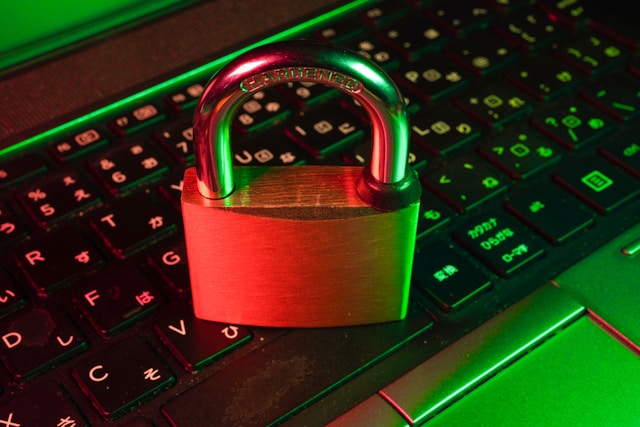Forex trading has become one of the most popular forms of investment, attracting traders worldwide. However, as the financial landscape shifts towards digital platforms, security concerns in the Forex market have become a significant issue. With increasing cyber threats, the role of cybersecurity in Forex trading has never been more crucial. Understanding how robust cybersecurity measures impact trading activities and protect traders from various risks is vital for anyone looking to succeed in the global market.
In this article, we will explore the importance of cybersecurity in Forex trading and how it can ensure safer and more reliable trading environments. We’ll also highlight the significance of selecting a broker Forex Terbaik who prioritizes security to safeguard your financial interests.
The Growing Importance of Cybersecurity in Forex Trading
As Forex trading becomes increasingly digital, it opens up numerous opportunities for cybercriminals to exploit vulnerabilities in trading systems. Cybersecurity refers to the practices and technologies used to protect systems, networks, and data from malicious attacks. In the context of Forex trading, effective cybersecurity is essential to prevent unauthorized access, data breaches, and fraud, all of which can lead to significant financial losses.
Cybersecurity risks in Forex trading include:
- Phishing Attacks: Cybercriminals impersonate legitimate brokers to steal sensitive information.
- Malware: Harmful software that can infiltrate trading systems and steal private data.
- DDoS Attacks: Distributed Denial-of-Service attacks can cause trading platforms to crash or become inaccessible.
- Data Breaches: Cybercriminals targeting personal and financial data.
A broker that implements comprehensive cybersecurity strategies provides traders with a safer environment to engage in trading activities without fear of these threats. Furthermore, broker forex terbaik should invest in technology to ensure that all their platforms, whether desktop or mobile, are protected from potential risks.
Key Elements of Cybersecurity in Forex Trading
For traders, choosing a broker that values cybersecurity is essential. Below are some of the critical elements to look for when assessing a broker’s cybersecurity infrastructure:
- Encryption and Secure Transactions
- Encryption technologies ensure that the data transferred between the trader and the broker is securely protected. A broker should implement SSL/TLS encryption to protect sensitive information during transactions.
- Encryption technologies ensure that the data transferred between the trader and the broker is securely protected. A broker should implement SSL/TLS encryption to protect sensitive information during transactions.
- Two-Factor Authentication (2FA)
- This adds an extra layer of security by requiring two forms of identification before granting access to trading accounts. Typically, a password and a one-time code sent to a mobile device are used, preventing unauthorized access even if a password is compromised.
- This adds an extra layer of security by requiring two forms of identification before granting access to trading accounts. Typically, a password and a one-time code sent to a mobile device are used, preventing unauthorized access even if a password is compromised.
- Firewalls and Intrusion Detection Systems (IDS)
- Firewalls act as barriers to unauthorized access, while intrusion detection systems monitor for any suspicious activity on trading platforms. These tools are essential for identifying and stopping cyberattacks before they cause harm.
- Firewalls act as barriers to unauthorized access, while intrusion detection systems monitor for any suspicious activity on trading platforms. These tools are essential for identifying and stopping cyberattacks before they cause harm.
- Regular Security Audits
- Periodic audits help ensure that a broker’s systems are up to date and resilient against new cyber threats. A broker who conducts regular security checks demonstrates a proactive approach to securing client data and trading systems.
- Periodic audits help ensure that a broker’s systems are up to date and resilient against new cyber threats. A broker who conducts regular security checks demonstrates a proactive approach to securing client data and trading systems.
- Compliance with Regulatory Standards
- Reputable brokers are often required to comply with industry regulations, which include specific cybersecurity requirements. Regulatory bodies such as the Financial Conduct Authority (FCA) or the Securities and Exchange Commission (SEC) set high standards for data protection, ensuring that brokers meet essential security measures.
- Reputable brokers are often required to comply with industry regulations, which include specific cybersecurity requirements. Regulatory bodies such as the Financial Conduct Authority (FCA) or the Securities and Exchange Commission (SEC) set high standards for data protection, ensuring that brokers meet essential security measures.
How Cybersecurity Impacts Trading Emas
In trading emas (gold), security becomes even more critical due to the high value of assets being traded. Gold has always been considered a safe-haven asset, and as a result, trading gold (whether in physical or digital forms) involves substantial financial transactions. Therefore, securing trading platforms is essential to ensure that traders’ investments are protected.
Cyberattacks in the trading emas market can result in the loss of significant amounts of money, both for individual traders and institutional investors. Brokers that prioritize cybersecurity can prevent unauthorized parties from accessing trading accounts and stealing funds or manipulating trading data. This ensures that gold traders can continue to engage in their activities without the fear of fraud or theft.
Best Practices for Forex Traders
As a Forex trader, it is not enough to rely solely on your broker’s cybersecurity measures. There are also steps you can take to protect your trading activities and personal information:
- Use Strong Passwords
- Always create strong, unique passwords for your trading account and change them regularly. A password manager can help generate and store complex passwords.
- Always create strong, unique passwords for your trading account and change them regularly. A password manager can help generate and store complex passwords.
- Enable Two-Factor Authentication
- Ensure that 2FA is enabled for all trading accounts. This simple yet effective security measure adds another layer of protection.
- Ensure that 2FA is enabled for all trading accounts. This simple yet effective security measure adds another layer of protection.
- Avoid Public Wi-Fi
- Never access your trading account over public or unsecured Wi-Fi networks. Public Wi-Fi connections are vulnerable to hacking and man-in-the-middle attacks.
- Never access your trading account over public or unsecured Wi-Fi networks. Public Wi-Fi connections are vulnerable to hacking and man-in-the-middle attacks.
- Stay Vigilant Against Phishing Scams
- Be cautious of unsolicited emails or messages that attempt to steal your personal information. Always verify the authenticity of the communication by contacting your broker directly.
- Be cautious of unsolicited emails or messages that attempt to steal your personal information. Always verify the authenticity of the communication by contacting your broker directly.
- Keep Software Updated
- Regularly update your operating system, trading platform, and antivirus software. This ensures that you are protected from known vulnerabilities and security loopholes.
- Regularly update your operating system, trading platform, and antivirus software. This ensures that you are protected from known vulnerabilities and security loopholes.
The Future of Cybersecurity in Forex Trading
As the Forex market continues to evolve, so too will the threats that traders face. In the future, we can expect brokers to adopt more advanced security technologies such as artificial intelligence (AI) and machine learning (ML) to detect and prevent cyberattacks in real time.
Furthermore, blockchain technology, which is being explored for financial transactions, could revolutionize Forex trading by providing secure, transparent, and immutable records of trades. This would reduce the risk of fraud and provide an additional layer of trust for traders.
Conclusion
In conclusion, cybersecurity is a vital aspect of broker forex terbaik and the overall Forex trading environment. With the increasing risks of cybercrime, both brokers and traders must adopt best practices to safeguard financial data and investments. As a trader, it’s crucial to choose brokers who prioritize cybersecurity measures such as encryption, two-factor authentication, and regular security audits. By doing so, you can ensure that your trading experience remains safe and reliable.
Remember, security in trading emas and Forex trading is not just a technical requirement but a necessity for safeguarding your financial future. Make informed decisions and stay vigilant to protect your assets from the ever-evolving landscape of cyber threats.
For more information on cybersecurity in trading, you can visit resources like fxstreet.com or investopedia.com, where you’ll find valuable insights and articles about best practices for protecting your online trading activities.

